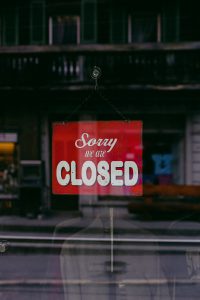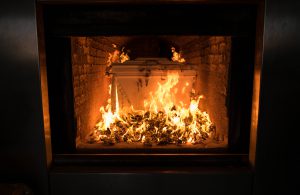Monday 13 April 2020

For some reason I shook a hand (Pixabay)
As I listened last night to our Prime Minister thanking the staff of St Thomas’ Hospital for basically saving his life, I was more than impressed. Impressed because not only had he just crawled from his sick bed to thank those involved, impressed not only because he was wearing jacket and tie, but impressed because he focussed his thanks on the caregivers. The names he cited, the people on whom he depended, were those who had physically stood by his side. At no point did he mention a manager.
I am sure there was plenty of managerial involvement, so that the Prime Minister could be kept from the grave, but his words highlighted what is important. When it comes to it, the caregivers that really matter are the ones who do the caring. Everyone else is in support. I sense modern healthcare may have lost its way in recent times and that undue importance is given to the administration and not to those who physically do the job. Perhaps, when all this is over, we can work out a way that those at the very tip of frontline action are seen as those who hold the sway.
This was driven home even harder this morning when I received a collage of photographs, of those in the NHS who had died as a result of Covid-19. “Lest we forget” said the message accompanying the photographs, and yet forgetting is what we seem to do. Where is the memorial that commemorates those who died after World War One of the fatal Spanish influenza pandemic? There are plenty of memorials to remember those who died in battle but few, if any, to those who died of disease. It is as if disease is a dirty word, and those who deal with it are only remembered on the day. Afterwards, they are once more forgotten, which seems inappropriate and unfair. I know that for the many military operations in which I was involved medically, over many decades, when I read the subsequent history of the event, I might as well not have existed.

Lockdown continues (Anna Shvets from Pexels)
The UK lockdown has been going on for roughly three weeks and some sectors of society are beginning to turn stir-fried crazy. Many of London’s properties are lying empty but as I made my 45-minute walk into work this morning, down a silent Bond Street and across a near-empty park, in many of the buildings I could see open windows on third, fourth, and even top floors. The weather has been hot, although today turned out to be windy, and for most in London air-conditioning does not exist. The apartments I was passing had no garden, no balcony, no access to the outdoors. From where I live I have limited access to a doorstep at pavement level, but the apartments I was passing en route to my work had absolutely none.
I looked at some of the faces of the folk I was helping today, the hardworking staff of the NHS. The fact is they are not well paid, have to work horrendous hours, and spend each day in real and present danger. Most receive little or no moral and emotional support. It is remarkable they turn up at all. I find it strange that three months before this Covid Crisis, the NHS and its people were being assaulted from all directions. Suddenly, and it was almost overnight, the NHS can do no wrong. Someone, somewhere, was trying to talk it up but then why not give the thing a fillip when one is due?
Social distancing continues to be a problem, and even for NHS staff it is not always perfect. Sometime in the late afternoon, when most of our visitors had been and gone, a single woman appeared to collect her supplies. She was obviously in a hurry. We greeted her at the door and offered a squirt of hand gel. It is standard practice for anyone who enters our domain. The gel is homemade by the hospital as that is its only supply. Buying on the open market these days depends too much on luck and good fortune. The new arrival mistook the offer of hand gel for a handshake, and immediately shook our hands at the front door. It was a most unusual feeling, not having shaken anyone’s hand for the past six weeks and now having done it in error. I have not even pecked a cheek for at least three months. My greetings have been definitely unfriendly.
Having apologised to the new arrival, and acknowledging her apology to me, I then looked at the assembled veterans, who had crowded round in disbelief to witness the mistaken handshake.
“When did you last shake a hand?” I asked them all.
Most shrugged, but a few consulted a diary. The best we could find was the 7th March. Since then, 5 weeks ago, none of us, apart from today’s error, had greeted anyone formally. How this pandemic has changed our society in such a short period of time.

In Wuhan the crematoria have been busy (peterpancake )
The new arrival was manifestly off form. Once she had said, “I’m sorry,” she scratched her nose, walked within ten centimetres of another waiting shopper, and exited the collection line through its entrance. Ah well, anyone can have a bad day. Yet all it needs is a moment of inattention and either you, or those around you, can suffer. The deaths reported now, whose numbers are both climbing and unimaginable, will have been created by similar errors roughly three weeks ago, wherever those errors occurred in the land.
I spent an easy hour in the afternoon discussing China and deciding if any of us believed what the country said. The general consensus was that the data are optimised to give best effect. At the end of March, China stated that Wuhan had seen 2535 deaths, and yet 5000 urns were delivered to a single crematorium in two days. The crematoria have been busy. In January and February this year, nearly 21 million mobile telephone accounts were cancelled. This may reflect a huge number of deaths, or perhaps it was caused by reduced business activities caused by the Covid-19 outbreak.
The United Kingdom has been told not to expect any dramatic changes in the UK’s lockdown policy for the moment although the Foreign Minister has said there are signs that the UK is beginning to win the struggle. That said, many bigwigs say we are not yet past the peak, however a peak is calculated. Meanwhile Spain has started to ease its lockdown measures in the face of a falling death toll, while Germany is doing so well, all others are wondering how. I sense that in UK we are on our way to having the worst European figures.
As overall deaths mount and healthcare staff fatalities rise, a debate is reawakening about masks. As I walk London’s streets, I see more masks being worn. For the moment there is no compulsion, but something tells me that situation will change.
At least Boris has made it out of hospital.
